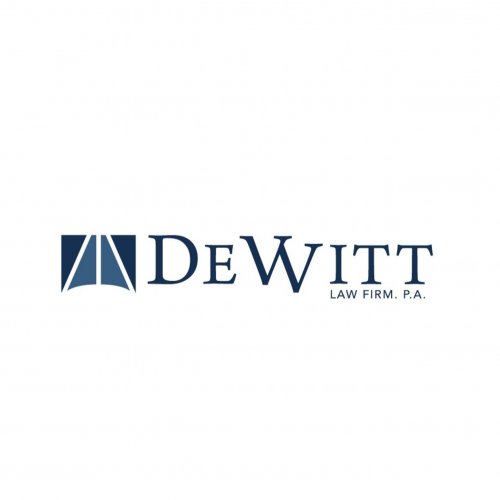Best Personal Injury Lawyers in Orlando
Share your needs with us, get contacted by law firms.
Free. Takes 2 min.
List of the best lawyers in Orlando, United States
About Personal Injury Law in Orlando, United States
Personal Injury law in Orlando, United States is a legal practice area that revolves around cases where individuals suffer harm or injuries due to the negligence or misconduct of others. Personal injury cases can arise from various incidents, such as car accidents, slip and falls, medical malpractice, product defects, and more.
Why You May Need a Lawyer
While it is possible to handle a personal injury claim on your own, having a lawyer can greatly increase your chances of receiving fair compensation. Here are some common situations where you may need legal help:
- Severe injuries or permanent disabilities
- Disputes over who is at fault
- Insurance companies denying or undervaluing your claim
- Complex legal procedures and paperwork
- Negotiating with aggressive insurance adjusters
Local Laws Overview
In Orlando, United States, personal injury law is governed by both state and local laws. Here are some key aspects of local laws that are particularly relevant to personal injury cases:
- Statute of Limitations: In Florida, the statute of limitations for personal injury claims is usually four years from the date of the incident. It is crucial to file your claim within this timeframe, or you may lose your right to seek compensation.
- Comparative Negligence: Florida follows a comparative negligence system, which means that even if you were partially at fault for the accident, you may still be eligible to receive compensation. However, your total compensation may be reduced based on your percentage of fault.
- No-Fault Car Insurance: Florida is a no-fault insurance state, which means that after a car accident, your own insurance company will typically cover your medical expenses regardless of who was at fault.
Frequently Asked Questions
1. What should I do immediately after an accident?
After an accident, prioritize your safety and the safety of others involved. Then, if possible, gather evidence such as photos, witness contact information, and any relevant documents. Seek medical attention and report the incident to the authorities. Finally, consult with a personal injury lawyer.
2. How much compensation can I receive for my injuries?
The amount of compensation you may receive depends on various factors, including the severity of your injuries, medical expenses, lost wages, pain and suffering, and more. A personal injury lawyer can evaluate your case and help estimate the potential value of your claim.
3. Should I accept the insurance company's settlement offer?
Insurance companies may offer low settlement amounts to minimize their costs. It is important to consult with a personal injury lawyer before accepting any offer. They can negotiate on your behalf and ensure that you receive fair compensation for your injuries.
4. How long will my personal injury case take?
The duration of a personal injury case can vary depending on various factors, such as the complexity of the case, negotiations with insurance companies, court schedules, and more. Generally, it can take several months to a few years to resolve a personal injury case.
5. What if the negligent party does not have insurance?
If the negligent party does not have insurance, you may still have options for seeking compensation. Your own insurance policy may have uninsured/underinsured motorist coverage which can help cover your damages. Consulting with a personal injury lawyer can help you explore the available options.
Additional Resources
Here are some resources, governmental bodies, and organizations related to personal injury in Orlando, United States that can provide valuable information and support:
- Florida Bar Association: Website: www.floridabar.org
- Florida Courts Self-Help Center: Website: www.flcourts.org/Self-Help
- Florida Department of Highway Safety and Motor Vehicles: Website: www.flhsmv.gov
- Legal Aid Society of the Orange County Bar Association: Website: www.legalaidocba.org
Next Steps
If you require legal assistance in a personal injury case in Orlando, United States, follow these steps:
- Gather all relevant documents, such as medical records, accident reports, and insurance policies.
- Research and compile a list of reputable personal injury lawyers in the area.
- Schedule consultations with a few different lawyers to discuss your case.
- During the consultations, ask about their experience, fees, and expected timeline for your case.
- Choose a lawyer who is experienced, trustworthy, and makes you feel comfortable.
- Work closely with your chosen lawyer to provide all necessary information and follow their guidance throughout the legal process.
Lawzana helps you find the best lawyers and law firms in Orlando through a curated and pre-screened list of qualified legal professionals. Our platform offers rankings and detailed profiles of attorneys and law firms, allowing you to compare based on practice areas, including Personal Injury, experience, and client feedback.
Each profile includes a description of the firm's areas of practice, client reviews, team members and partners, year of establishment, spoken languages, office locations, contact information, social media presence, and any published articles or resources. Most firms on our platform speak English and are experienced in both local and international legal matters.
Get a quote from top-rated law firms in Orlando, United States — quickly, securely, and without unnecessary hassle.
Disclaimer:
The information provided on this page is for general informational purposes only and does not constitute legal advice. While we strive to ensure the accuracy and relevance of the content, legal information may change over time, and interpretations of the law can vary. You should always consult with a qualified legal professional for advice specific to your situation.
We disclaim all liability for actions taken or not taken based on the content of this page. If you believe any information is incorrect or outdated, please contact us, and we will review and update it where appropriate.










